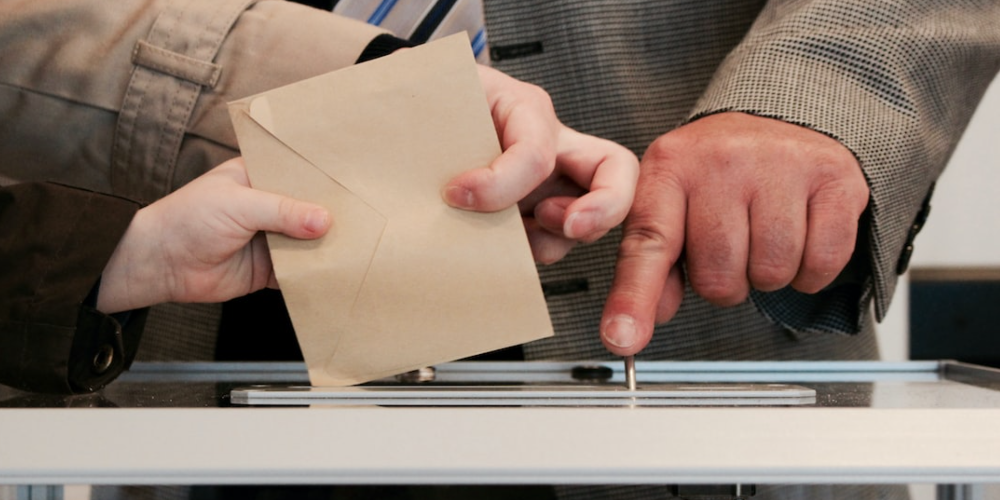UK GOVERNMENT ENDS 15-YEAR RULE FOR OVERSEAS VOTING
The British Ambassador to Spain urges UK citizens to register so that they be able to vote when the time comes.

The UK Government has announced that, as of 16th January 2024, UK citizens living abroad who have previously lived in the UK or been registered to vote in the UK are now eligible to vote in UK general elections, regardless of the length of time they have been living outside of the United Kingdom, after the 15-year limit was abolished.
The change in the law, removing the time limit after which UK citizens could not register to vote, will bring the United Kingdom in line with other major democracies which allow lifelong voting rights, including the United States, France, Italy and Canada. Hugh Elliot, UK’s Ambassador to Spain confirmed that “This law means that more British citizens living in Spain will now be eligible to vote in UK parliamentary elections, which is good news. We’re asking the British community here to help us spread the word, because it’s important that eligible people are made aware of the changes so that they can register and cast a ballot when the time comes.”
It has been estimated that this change to the eligibility rules which will allow all UK citizens previously resident to vote will mean that around 3.5 million British nationals living abroad will be able to register to vote. It also allows those citizens to be able to donate to political parties and campaigns.
The first step to check that you are able to do so using this link, and then register as an overseas voter via the local authority of the last address in the UK where you were registered to vote or were resident using the same link; the authority will need to verify your information. This registration is valid for three years and a reminder will be issued when renewal is imminent. Be aware that those citizens who don’t renew will be removed from the register and they will need to make a fresh application if they wish to vote again.
After registration, you will be able to vote in UK Parliament elections and in referendums if you are eligible (since each referendum has different rules on who can vote). Voting can be done either by postal vote or by proxy vote – click here for more information – or in person at your allotted polling station if you are in the UK at the time of the election/referendum, providing you haven’t applied for a postal vote or appointed a proxy.
The next UK general election is expected to be held in the second half of 2024.
More information can be found on The Electoral Commission website.
A History of Overseas Voting
Before 1985, UK citizens living abroad could not exercise their right to vote in elections unless there were serving members of the Armed Forces (or a spouse or civil partner of someone in the Armed Forces).
After recommendation from the Home Affairs Select Committee that all UK citizens resident in the then European Economic Community (EEC) countries should have a right to vote in UK parliamentary elections, the Representation of the People Act 1985 made provision for UK citizens living abroad to retain their voting rights for a period of five years, providing they had registered to vote before leaving the country. Those who hadn’t done so would remain ineligible.
The Representation of the People Act 1989 extended this period to 20 years. Almost decade later, a Home Affairs Select Committee report of October 1998 included a statement from some witnesses who considered that “it was unreasonable for people who have been away for so long to retain the right to vote. They argued that someone voting in a constituency many years after they had left would have little knowledge of contemporary local issues”. Both Labour and the Liberal Democrats argued that 20 years was too long a period and the Committee agreed that it was excessive and recommended that the earlier limit of five years be restored.
Section 141 of the Political Parties, Elections and Referendums Act 2000 amended the overseas voter time limit to 15 years. Despite an active campaign to encourage UK citizens living abroad to register to vote in UK parliamentary elections, less than 13,000 overseas voters were registered on the UK electoral register prior to the 2010 general election. Other awareness campaigns in advance of the 2015 general election and 2016 BREXIT referendum increased the number of registered overseas voters to over 250,000.
In 2009 Harry Shindler, a UK citizen who moved to Italy in 1982, took the United Kingdom to the European Court of Human Rights to force a change to the law that would allow him to vote in UK general elections, arguing that no time limit should be imposed on the right of British citizens
living overseas to vote in the UK. In May 2013, the ECHR ruled that the UK’s electoral law “had not gone too far in restricting the right to Mr Shindler’s right to free elections” and “allowing non-residents to vote for 15 years after leaving the country was not an unsubstantial period of time.”
In 2016, Shindler got together with Jacqueline Maclennan, who had lived in Brussels since 1987, took their case to the High Court in England to challenge the legality of the BREXIT referendum since it would exclude British citizens who have lived abroad for more than 15 years, claiming that it constituted a restriction on their rights of free movement. The High Court rejected their claim and an appeal was refused by the Court of Appeal.
The Elections Act 2022, which contained provisions to abolish the time limit on overseas voters, was approved in the autumn of 2023 and took effect on 16th January 2024. Sadly, Harry Shindler OBE wouldn’t see the act come into force, dying, aged 101, in February 2023, although he lived long enough to be able celebrate the passing of the Elections Bill in the House of Lords in March 2022, a critical stage which would ultimately allow UK citizens residing overseas to vote in UK general elections regardless of how long they have lived abroad.





